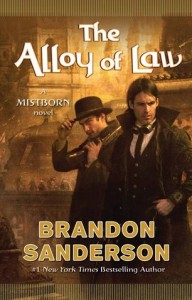I was never exposed to Dungeons & Dragons while growing up in India. During my later years, as I came to know about it, I have always been fascinated by the game that plays in your mind. After a few discussions during lunch and expressing my curiosity, one of my friends at work decided to set up an introductory D&D session for me. He even created my playable character for me after talking to me and we met after work.
That was last September and I loved it. At present, I am playing in two campaigns. I tend to take very detailed notes and so I decided to write one of the incidents that happened a month back in one of my campaigns. Although it is not the beginning, I am calling it “Prologue” (that may change later).
I do not claim that the story is mine, but it is how it played in my mind. The dialogs are how I heard them and the scenery is how I saw it. It is my retelling of how it went down. I hope my interest stays and I bring more stories like this.
I give you … Prologue …

Prologue
Grommish looks at everyone and speaks in his guttural voice, “I am going to approach the house. You guys should hang back. I do not want to scare the parents”.
Everyone nods except Yolanda, who seems to be annoyed. She grimaces at the suggestion and looks at Grommish, “I will come with you. Last time we talked to them, I was there”.
“Fine. But no threats this time. And I will do the talking”. Grommish stares at Yolanda with his piercing orc eyes. “Are we in agreement, Yolanda?”
She shrugs and gives a slight nod. Grommish starts walking towards the house and Yolanda follows him.
The rest of their company hangs back from the farmer’s home. The golden glow of the dusk sky gives a strange shade to the already harvested fields. It is a small and humble home made of raw clay bricks that give the house its shade. There are small colored decorations on the house in a darker hue along with some handprints around the outer wall. An old door made from oak wood adorns the house. The roof seems to need a new thatch and a small lantern is hanging on the side of the front of the door. A small paddy field extends around the house on the right and transforms into a vegetable garden behind it.
Carna feels a strange eeriness in the air, now that they were closer to the town.
“The town is aptly named Hopeless Fancy. The air is evil. I feel the hope is being drained out of me”, Carna says looking at the rest of them. Everyone seems to agree. Kalyn nods but keeps looking around, scouting the area.
“Would you give it a rest, my dear man. This is a poor farmer’s home”, Carna says.
“Hey, I can’t help it. This is what I do best” replies Kalyn with a smirk on his face.
Everyone turns their head towards the house, as they hear Grommish knock on the door in a friendly manner. A middle-aged woman opens the door. She is wearing simple lighter colored clothes which have seen some seasons. They can’t hear what they are talking from this distance, but it seems that the orc and the halfling are known to the woman. She seems friendly to them.
“Let’s get closer, I can’t hear a thing from here”, Verok suggests. Everyone starts to move a bit closer to the house. The woman looks at the motion beyond Grommish, her eyes widen as they settle on the Dragonborn.
Grommish notices her gaze. “It’s fine Ms. Clairidge, they are my friends. They are with me”, they hear Grommish telling the woman, as they get closer. “That is Verok, and yes he is a Drgonborn”.
The woman looks back at Grommish and sadness seems to creep back in her eyes.
“As I was saying Ms. Clairidge, Yolanda and I are still investigating the disappearance of your son. We caught Mad-Eye the hermit but it seems it was a false lead”. Krowley notices that Yolanda looks bored of all this talk and her hand slides along with her bow. The woman dabs her eye with the edge of her shawl and nods.
“Ms. Clairidge, I have a favor to ask. I know it is painful for you to recall, but I do wish if you could tell us one more time how did your son disappear”, Grommish requests in the friendliest way possible.
“Well, as I told you before”, her voice quivers, “after the day’s work, my husband and my son came back in the house for supper. They both looked tired from tilling the fields and getting ready for the next harvest season. The supper was a quiet affair, and after supper, my son went to bed. And the next morning, he was gone. Gone like the others”.
“Are there any other ways to get out of your house, besides this door?”. The woman shakes her head.
“Any windows in your son’s room where he could use to get out?”. She again shakes her head.
“And the door creaks! How did your son get out of the house without you or your husband knowing, Ms. Clairidge”. Everyone is looking at the woman waiting for her response. Even Yolanda was looking from Grommish to the woman.
Ms. Clairidge’s voice gets agitates a little bit, “What are you trying to say? Our son was kidnapped … kidnapped by that hermit, Mad-Eye … or whatever his name is. My poor son, I wonder where he is, and if he is still …”. She could not finish the sentence and started sobbing.
Grommish looks at her patiently. After a few moments, she composes herself “As I said, he was taken, just like the other children”.
“Ms. Clairidge, who are you afraid of?”. The woman’s face jerks up and she looks at Grommish. “Because you and I both know what you are telling us is not true. I caught up with Mad-Eye and he has not taken your son or any other child. Yes, I know, he was around your home when your son was kidnapped. He told me that he saw two figures walking away from your home that evening. It was a little darker so he did not see who it was. But he said one figure matched the height of your son”, Grommish’s tone was serious now. “Who are you afraid of, Ms. Clairidge? I implore you to please tell me what exactly happened. We need to know, so we can save your son, and other children who have been taken”.
“And this time, please tell us the truth”.
The woman’s eyes tear up and she starts sobbing. Grommish looks at Yolanda who still seemed indifferent and restless. He looks back at the woman who stops crying, takes a deep sigh and in quivering voice tells what happened.
“As I said, my husband and our son came back from the day’s work. After supper, my son went to his room. My husband and I were talking about how much we will be able to save from this harvest when we heard a knock on our door. My husband, David, was the one who answered the door. I was trying to see who was at the door, but my husband was blocking my view. All I could see was someone who was wearing a dark robe. Then my husband called my son. I stood up and walked up to the door. As our son came out of his room, my husband asked him to accompany the man. I tried stepping forward and asking him who is at the door, and why was he asking our son to go with him. But my husband blocked my path with his arm and closed the door behind our son. He stopped me from opening the door behind my son and told me later that it was the Dark Druid who threatened the life of our son. He also said that the druid told him that our son’s life will be spared if he comes with us. That’s all I know”.
Clairidge then drops on her knees, buries her face in her hands and started crying, “My son. Gone. Gone like the others. My poor son”.
Grommish kneels next to her and puts his hand on the woman’s shoulders.
“Don’t worry Ms. Clairidge, we will find your son. I am sorry that you had to relive this again. I do not think it was the Dark Druid who took your son. Dark Druids do not exist anymore, for a few thousand years now”. Ms. Clairidge looks up inquisitively at Grommish.
“You do not think it was the Dark Druid who took my son?”, she asks Grommish.
“No, I do not think so. I think someone is posing as a Dark Druid and I need to find out why. We will try our best to find your son and other children who have been taken. Thank you for telling us the truth. Now we know exactly what happened and can do the right investigation”.
“If it is alright with you, we would like to speak to your husband, David, and ask him if he can give us any clue to who could be the person who was posing as the Dark Druid”, Grommish says standing up.
The woman stops crying and nods. She stands up and points towards the field in the southwest direction beyond where the rest of the party is standing. “David is still working in the fields”.
Everyone turns to look behind at a solitary figure working on the other side of the field. He seemed to be trying to stay oblivious to them all, slowly moving away. As he notices everyone looking in his direction, he stands up.
“Hello there”, Carna calls. David drops the sickle and the scythe from his hands and starts running away from the house. Ms. Clairidge eyes widen in surprise and then she sees everyone running behind David.
JPS Nagi
March 15, 2020


![1024full-he--man-and-the-masters-of-the-universe-photo[1]](http://jpsnagi.com/wp-content/uploads/2016/07/1024full-he-man-and-the-masters-of-the-universe-photo1-300x174.jpg)



